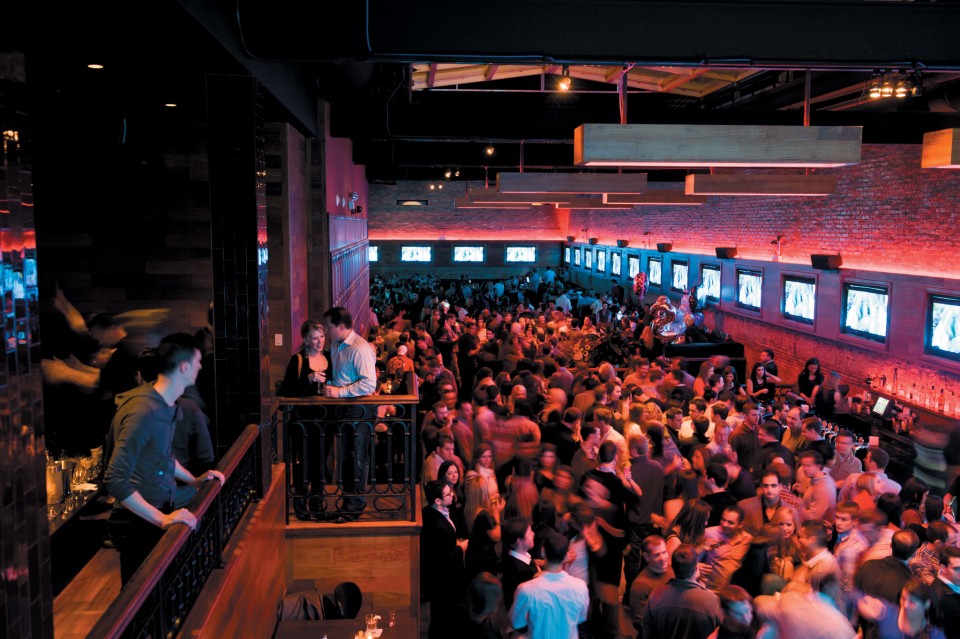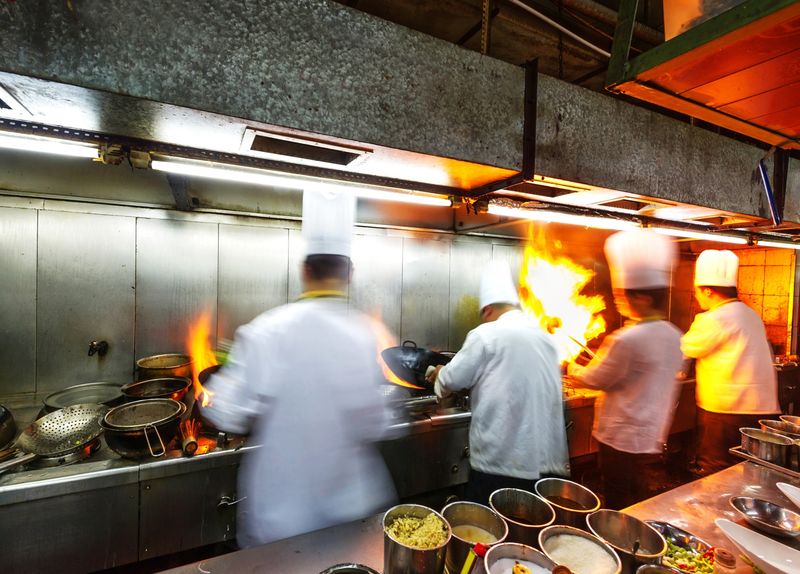
Oct 13, 2017
David Matthews and Tanveer Ali | DNAinfo | October 11, 2017
RIVER NORTH — It could be last call for more alcohol in River North.
The City Council voted Wednesday to prohibit new liquor licenses in much of the neighborhood long known for its nightlife.
Citing an “over-concentration” of bars in the area, the new law introduced by 42nd Ward Ald. Brendan Reilly seeks to prohibit new watering holes in wide swaths of River North.
The ordinance only applies to new bars that make most of their money off booze, not other businesses such as hotels, restaurants or music venues that also sell drinks. Existing River North bars will not be affected.
Reilly, who didn’t return messages seeking comment, for years has told neighbors he frowns on granting tavern licenses to new bars that he said attract drunken mischief to River North.
Lilia Chacon, a spokeswoman for the city’s Department of Business Affairs and Consumer Protection, said there already are moratoriums in the ward with regard to bars, liquor stores and late-night clubs. Any liquor licenses recently granted in the ward have gone to restaurants and other businesses with incidental drink sales, she said.
A new ordinance would make those restrictions more permanent in River North.
“There is a delicate balance between residential, business, hospitality and tourism objectives in our very dynamic neighborhood,” Mike Riordan, president of the River North Residents Association, said in an email. “We work extremely hard to advocate for quality of life issues and to collaborate with business owners so that we all thrive. ”
CONTINUE READING

Sep 1, 2017
Karen Stabiner | New York Times | August 25, 2017
The early diners are dawdling, so your 7:30 p.m. reservation looks more like 8. While you wait, the last order of the duck you wanted passes by. Tonight, you’ll be eating something else — without a second bottle of wine, because you can’t find your server in the busy dining room. This is not your favorite night out.
The right data could have fixed it, according to the tech wizards who are determined to jolt the restaurant industry out of its current slump. Information culled and crunched from a wide array of sources can identify customers who like to linger, based on data about their dining histories, so the manager can anticipate your wait, buy you a drink and make the delay less painful.
It can track the restaurant’s duck sales by day, week and season, and flag you as a regular who likes duck. It can identify a server whose customers have spent a less-than-average amount on alcohol, to see if he needs to sharpen his second-round skills.
So Big Data is staging an intervention.
Both start-ups and established companies are scrambling to deliver up-to-the-minute data on sales, customers, staff performance or competitors by merging the information that restaurants already have with all sorts of data from outside sources: social media, tracking apps, reservation systems, review sites, even weather reports.
They have an eager audience. The NPD Group, a market research company, is predicting “flat” growth in 2017 restaurant traffic, with a 2 percent decline among full-service restaurants and no growth for quick-service restaurants. A 2016 National Restaurant Association survey reported that four out of five restaurateurs believed that business would improve if they embraced technology, and a third worried that they were lagging in those efforts.
CONTINUE READING

Jun 14, 2017
Daniela Galarza | Eater
“Conflict and Change” was the topic of yesterday’s fourth-annual Welcome Conference, a hospitality summit created by restaurateur Will Guidara of Eleven Madison Park and Anthony Rudolf, founder of the educational community Journee. Its goal is to bring members of the restaurant world together; this year’s theme was chosen in light of challenges in the industry, though it nods at this country’s current political climate, as well.
Chefs and restaurateurs including Jordyn Lexton of Drive Change, David Chang of Momofuku, Rich Melman of Lettuce Entertain You, and Brian Canlis of Canlis in Seattle spoke to the crowd of 850 about their own personal challenges and conflicts — and the ever-changing industry. Here now, attendees and speakers on what they believe to be the most pressing conflicts facing the hospitality business today:
Patrick O’Connell, the Inn at Little Washington, Washington, VA: “The greatest conflict in the industry today? How about the world? I think we need to have more empathy. The restaurant industry isn’t isolated… our collective anxiety level is extraordinarily high right now, and it’s affecting people’s concentration and their ability to perform. So much of what we’re about is taking people out of their reality and making them happy, putting them in a festive frame of mind.

Jul 20, 2016
The food and dining scene in New York City is constantly flourishing with new, hip restaurants taking center stage. Most recently, it has been common to see one of these restaurants in the corner of a hotel or within a mixed-use property. Take the Michelin-starred Breslin Bar and Dining Room, the newest brainchild of Chef April Bloomfield and restaurateur Ken Friedman, which is located at the Ace Hotel in Midtown Manhattan, along with John Dory Oyster Bar, Stumptown Coffee Roasters, No. 7 Sub and a number of retail clothing stores.

As part of a mixed-use property, restaurant owners are housing their bread and butter alongside a variety of residential, commercial and retail neighbors. An efficient and beneficial way to serve your marketing and business needs, opening up shop within such a property allows you to feed off other businesses surrounding you. Of course, it’s not all fun and games when sharing space with others. You may face some stumps and hurdles, and must consider whether this is the right move for you and your restaurant.
This may be your first gig where you are considering all options when selecting the ideal location for your restaurant. Or, you may already own a freestanding restaurant and are looking to open your next branch. In either case, you must understand the key differences between the two differing opportunities, and what they have to offer you.
The primary benefits of a location within a mixed-use property are twofold: 1) support from being part of a development community and 2) traffic from surrounding businesses and tenants with similar interests.
Newer mixed-use developments usually are more code-compliant and have better facilities. The space is typically built from the ground up and so has been constructed with specific purposes in mind from the get-go. The landlord wants to see your restaurant succeed and may offer leasing incentives.
Being part of a community of facilities can reap great benefits, in terms of branding and exposure, especially if you are located on the grounds of a well-known hotel. In this case, although the space may be more expensive, your success may lead you to future opportunities with the hotel if it opens other locations in the city or abroad. Just as they can help enhance your reputation, your success gives them more exposure, too, and similarly aids in their success. Similarly, other tenants, whether they are other restaurants or retailers, can help your business flourish, while simultaneously you help theirs. In the best cases all businesses located within such a property share a synergy and economies of scale.

Anyone considering opening a restaurant in a mixed-use property must also examine the legal realities to negotiate the best deal. It’s important to research the types of businesses that will be part of the project, especially if it involves a hotel. Often restaurants located within a hotel are responsible for providing breakfast and roomservice, for example.
It’s also crucial to examine the lease or contract to see if they are part of a net lease that usually includes Common Area Maintenance (CAM) charges. The operator should also consider the complicated interplay among the hotel, offices, residential and restaurant, including common areas, shared responsibility and costs, the insurance landscape, maintenance, tax escalations, union rules and service level agreement issues.
When considering the best space for your new restaurant, it’s all about location, location, location. So make sure when you do decide to mix, you mix well.
Bruce Bronster is a real estate and hospitality partner at Windels Marx Lane & Mittendorf, a New York-based law firm. He focuses on hospitality and restaurants, commercial disputes, tax lien and mortgage foreclosures, and provides general business advice.
(H/T restaurant-hospitality.com)

Jul 11, 2016
Every restaurant owner decides to sell the business at some point. These three strategies will help ensure top dollar.
Decided it’s time to sell your restaurant and move on? Just like selling a home, it’s important literally to get your house in order. Here are three ways to get started.

1. Keep accurate books and records, and prepare an accurate valuation analysis.
With today’s bookkeeping technologies such as Quickbooks, keeping good books and records has never been easier for restaurant owners. Spend the money for a good bookkeeper to help keep the financials in order.
Having good books and records spells the difference between selling your restaurant fast and for top dollar and having it sit on the market for months and never selling at all.
But having accurate books and records is only part of the process. A skilled restaurant broker with a deep understanding of financial statement analysis is just as important as the books and records. A broker will dig into the financials and recast them to determine the owner’s discretionary income and then apply the appropriate multiple to the owner’s discretionary income.

2. Get your restaurant organized and staged.
In the real estate business, it is commonplace to stage a home to obtain top dollar as well as sell the home fast. These same principle applies to a business.
Start by having your property professionally cleaned—then maintain it. Be sure to turn the kitchen into a clean, organized, well-oiled facility. Finally, spiff up the dining and bar area by adding flair and class to it. Property stagers can help you do a makeover at a reasonable price. Find one in your area.
By the way, often making over the dining area will not only boost food sales by 10 percent or more, but spending just a few thousand dollars in the dining room can justify as much as a 10 percent jump in prices.

3. Work with a knowledgeable real estate professional.
Don’t underestimate the value a good restaurant broker brings to the table by packaging your restaurant for the market. This means:
• Preparing a thorough valuation analysis
• Reviewing the lease to understand the potential pitfalls in transferring it
• Researching the restaurant’s history to understand its strengths and weaknesses
• Viewing the operation subjectively and looking for ways to improve it
• Comparing your restaurant to other operations in the market
These three simple steps are the difference between having the restaurant quickly sell for top dollar or sitting on the market and never selling at all.
(H/T restaurant-hospitality.com)










